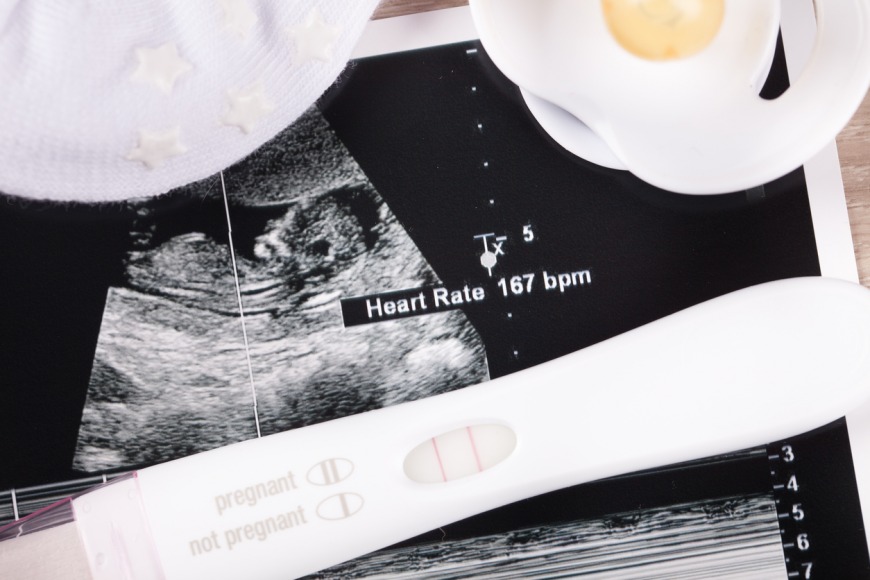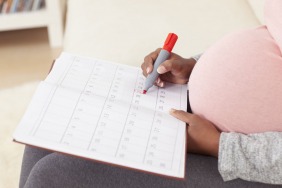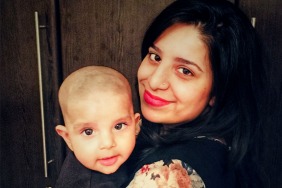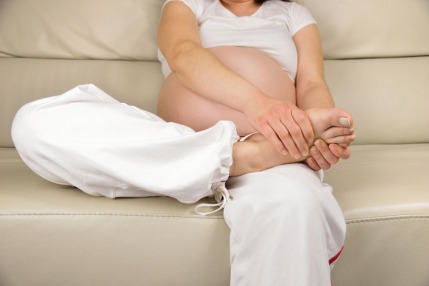Having a baby is one of the most joyous times in many women's lives.
For a lot of women, the first 12 weeks or so of pregnancy are the most consuming because everything is new, exciting and a tad overwhelming.
This phase of your pregnancy begins on the first day of your last menstrual period, and ends at week 12 - or around 3 months.
This trimester is the most important; it's the time when your baby's most vital organs and cells are growing, and so it's no surprise that you experience a lot of changes physically and emotionally during this period.

Changes in Your Body
While pregnancy is different from woman to woman, here are some of the most common changes you might experience, as well as what they mean and which signs to look out for that warrant a phone call to your doctor.
Bleeding
Did you know that around 25% of pregnant women experience light bleeding during their first trimester? While this may naturally may become cause for concern, it's actually not an uncommon thing. Light spotting is a sign that the fertilised embryo has implanted in your uterus.
Nonetheless, if the bleeding is heavy, your cramping is too painful or you have sharp pains in your abdomen, then please all your doctor.
Tender Breasts
Sore breasts are one of the earliest signs of pregnancy, and are triggered by hormonal changes. In fact, these changes are preparing your milk ducts to help feed your baby once they arrive, and the tenderness will no doubt last right the way through your first trimester.
To help ease the discomfort, wear a bigger bra size, or wear a support bra that's less wire and lace, and more freedom and comfort.
Constipation
Perhaps it's not one of the more commonly known changes women experience in the first stages of pregnancy, but it is one of the most uncomfortable. When pregnant, your muscle contractions that normally help to move food through your intestines slow down due to the higher levels of the hormone, progesterone. Add on top of that the extra iron you're no doubt consuming now thanks to your prenatal vitamins.
The result is uncomfortable constipation, and gas that keeps you feeling bloated throughout your entire pregnancy. To help ease the discomfort, increase your fiber intake and make sure you're drinking plenty of fluids!
Fatigue
It's not difficult to understand that as your body is busy working hard to support your growing baby, you may get a little worn out more than usual. So make sure you're taking plenty of naps and resting time throughout the day! Make sure your iron levels are enough, too.
Discharge
If you find discharge in your pants, don't panic - this is perfectly normal. In fact, this thin, milky white discharge you're probably finding is called 'leukorrhea', and it's normal in the earlier stages of pregnancy. If it has a bad smell, or is green or yellow - or there's a lot of clear discharge - consult your doctor.
Aversions and Cravings to Food
Being repelled by particular smells and tastes is common during your first trimester. In fact, over 60% of pregnant women experience food cravings, while over half have food aversions. Giving in to your cravings sometimes is fine, as long as you're generally eating a healthy diet.
However, if you begin to experience pica, which is a craving for non-foods like clay, dirt and laundry starch, this can be dangerous for you and your baby so consult your doctor immediately.
Other changes in your body that you may experience include:
The Universal Symptom: Morning Sickness
Over 85% of pregnant women experience nausea, as it's a result of hormonal changes in the body. For the unlucky few, it can last through the entire first trimester - but for some others, the morning sickness may only be mild.
It's usually worst in the morning - hence it's suitable nickname - and to help calm your nausea, you should try eating small, bland or high-protein snacks like crackers, meat or cheese, as well as sipping water or clear fruit juice. Ginger ale might even help, too!
Avoid foods that may may you sick to your stomach, and if your nausea persists or is severe, it can affect the amount of nutrition your growing baby is getting so call your doctor as soon as you can.
Your Ultrasounds
An ultrasound - or sonogram - is a completely painless test that lets your doctor or skilled technician (and you!) see your baby.
The machine uses a plastic transducer that transmits high-frequency sound waves through your uterus - and these sound waves then send signals back to the machine, which then convert into images of your baby.
During your first trimester, you can expect to have your first ultrasound between the 6th and 8th weeks of your pregnancy. After then, a clearer photo will come around 13 weeks at the beginning of your second trimester. This will no doubt also be the time you'll want to start sharing your exciting news.

























.png?itok=SvZPqMHH)


































.png?itok=uB2ieOR7)












